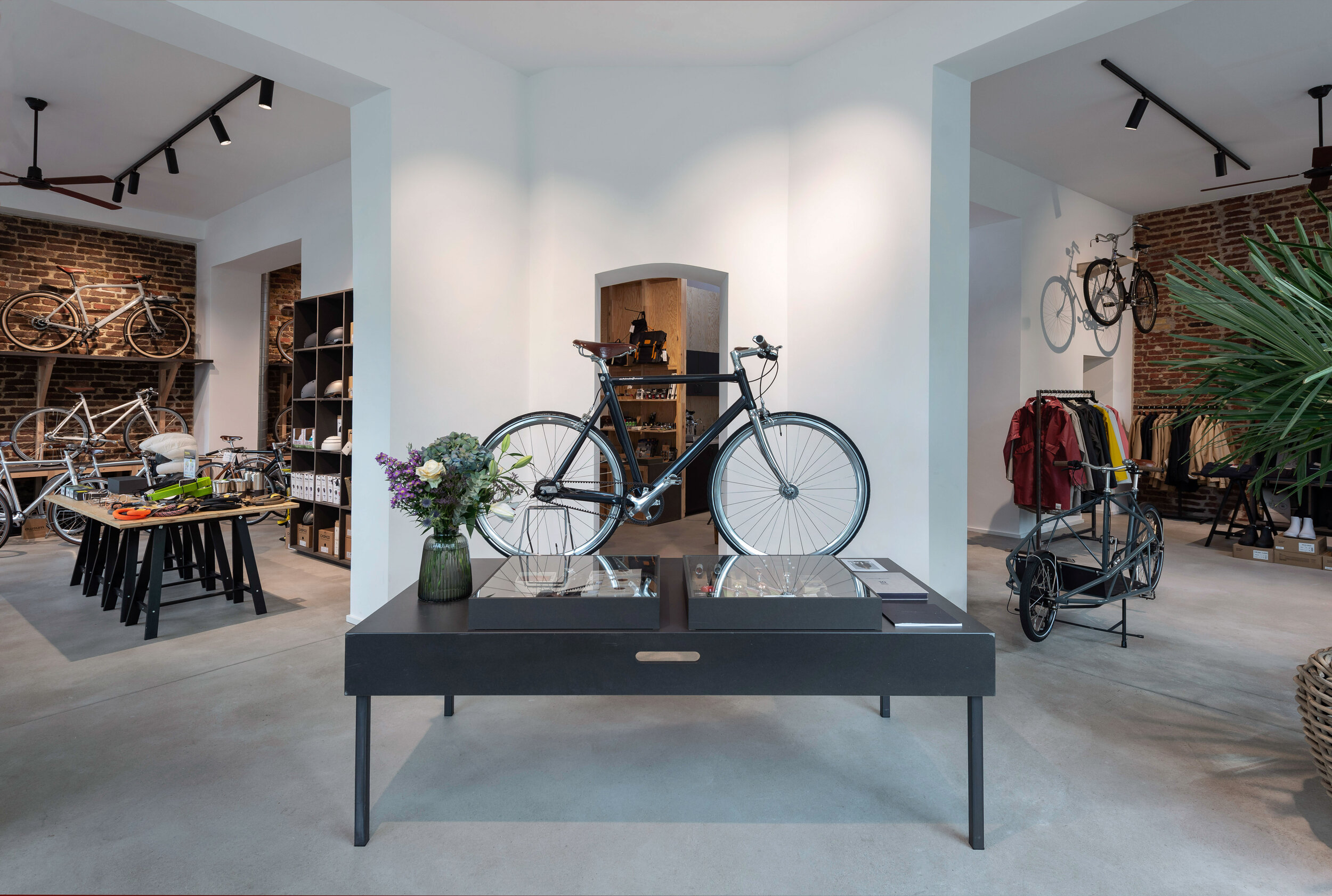Bicycle Boom
Cycling - especially with electric assistance - is becoming increasingly popular. VIVID has talked to cycling specialists from Düsseldorf about the coronavirus' contribution to this development and what the most important bike trends currently are.
Over 3,2 million bicycles and e-bikes were sold in Germany in the first half of 2020. According to the Zweirad-Industrie-Verband ZIV, the two-wheel industry association, this is an increase of almost 10 percent compared to the first half of 2019. More than a third of these bikes had an electric motor - an increase of almost 16 percent. A booming business despite the corona pandemic! Or because of it?
“The bicycle trade in this country has never experienced this before, especially not over such a short period of time,” comments Marcel Hollenberg, Marketing & Retail Manager at Giant Germany. The world’s largest bicycle manufacturer from Taiwan has its German headquarters in Erkrath and runs a 700 square metre flagship store in Düsseldorf-Friedrichstadt - Giant Cycling World. “This year, many people have given up holiday trips to faraway places and invested their money in other things instead. For example, in a nice new bicycle or e-bike,” says Hollenberg. But even independently of the corona pandemic, the industry has been experiencing a strong tailwind in recent years. Especially due to the dynamic development of the e-bike from the “pensioner’s bike” with auxiliary engine to the stylish “Bicycle 2.0” that is a desirable status symbol.
However, the German bicycle trade also had to close its shops for several weeks in March 2020, which initially meant a drop in sales. “During this time, we hardly delivered any bicycles to the retail trade. Many of our retailers improvised and demonstrated bikes to their customers in the shop via Facetime or WhatsApp, for example. The purchase was then processed online and delivery to the customer's home was contactless,” Hollenberg recalls. Since then, the Giant team in the sales and service department has been operating partly from home, which works well.
Since bicycle repair shops were classified by politicians as “system relevant”, many dealers were able to generate at least some turnover with this service during the lockdown. Like Anja Bergen, Store Manager at Awsum. The concept store in Düsseldorf-Flingern opened its doors at the end of 2017 and does not only sell bicycles, but also cycling gear and accessories that have been tested and approved- true to the slogan “Things we love”: for example, bicycle shorts and jackets, shoes etc. In a short time, Awsum has continuously expanded its brand portfolio and is now, for example, the second largest retailer in Germany for the cult Berlin bicycle brand Schindelhauer and for the Spanish e-bike manufacturer Desiknio.
A look into awsum, a concept store for urban mobility in Düsseldorf-Flingern.
The gravel bike is super popular - here a top gravel bike - Revolt Advanced Pro by Giant.
“Since the reopening of our store at the end of April, we have been experiencing a real boom in sales. Many people who come to us, have really got to grips with cycling for the first time ever over the last few months,” says Anja Bergen. She cleverly anticipated this development and bought many bikes as well accessories early on, so that Awsum has been able to cushion the increased demand well so far. In the meantime, orders are slowly levelling off. “But there are things that are not delivered at all or only trickling in - helmets for example”. Many bicycle components, gear shifts or brakes, for example, are also manufactured in Asia, so there are delivery delays. “Because we are still relatively small, we sometimes have to juggle various aspects of our business, e.g. our way of organisation and service or how we stock our warehouse,” explains Anja Bergen.
Even the world’s largest manufacturer, Giant, is currently not immune to supply bottlenecks. But it has a decisive competitive advantage over other suppliers: “We are one of the few bicycle brands in the world that has everything from its own aluminium plants to its production facilities in one hand. This gives us a certain independence. But when it comes to components such as brakes or gears, we depend on suppliers as well,” explains Marcel Hollenberg.
What customers are increasingly asking for at the moment is in line with the major trends of the last two or three years. “E-bikes are becoming more and more stylish and delicate, which is also of great appeal to young people. This development will continue in such a way that in a few years the normal bike - we are talking about bio-bikes - will lead a niche existence compared to e-bikes”, Hollenberg states confidently. In addition, many people have rediscovered the racing bike as a sports object in corona times. The gravel bike - a more robust form of racing bike that is also suitable for off-road terrain - is also becoming increasingly popular.
“This development will continue in such a way that in a few years the normal bike - we are talking about bio-bikes - will lead a niche existence compared to e-bikes”
Looking ahead to the near future, David Eisenberger, Head of Marketing & Communication of the German Two-Wheeler Industry Association, is cautiously optimistic: “Bicycle mobility is systemically relevant. The last few months have shown that. Furthermore, we know that this year bicycle and e-bike have also attracted new target groups. Many of these new users will not want to do with-out two-wheel mobility even after the crisis”. •
Awsum has bikes of the cult brand Schindelhauer among others in stock, here the model LUDWIG XIV in midnight blue.
Words: Tom Corinth
Pictures: PR




